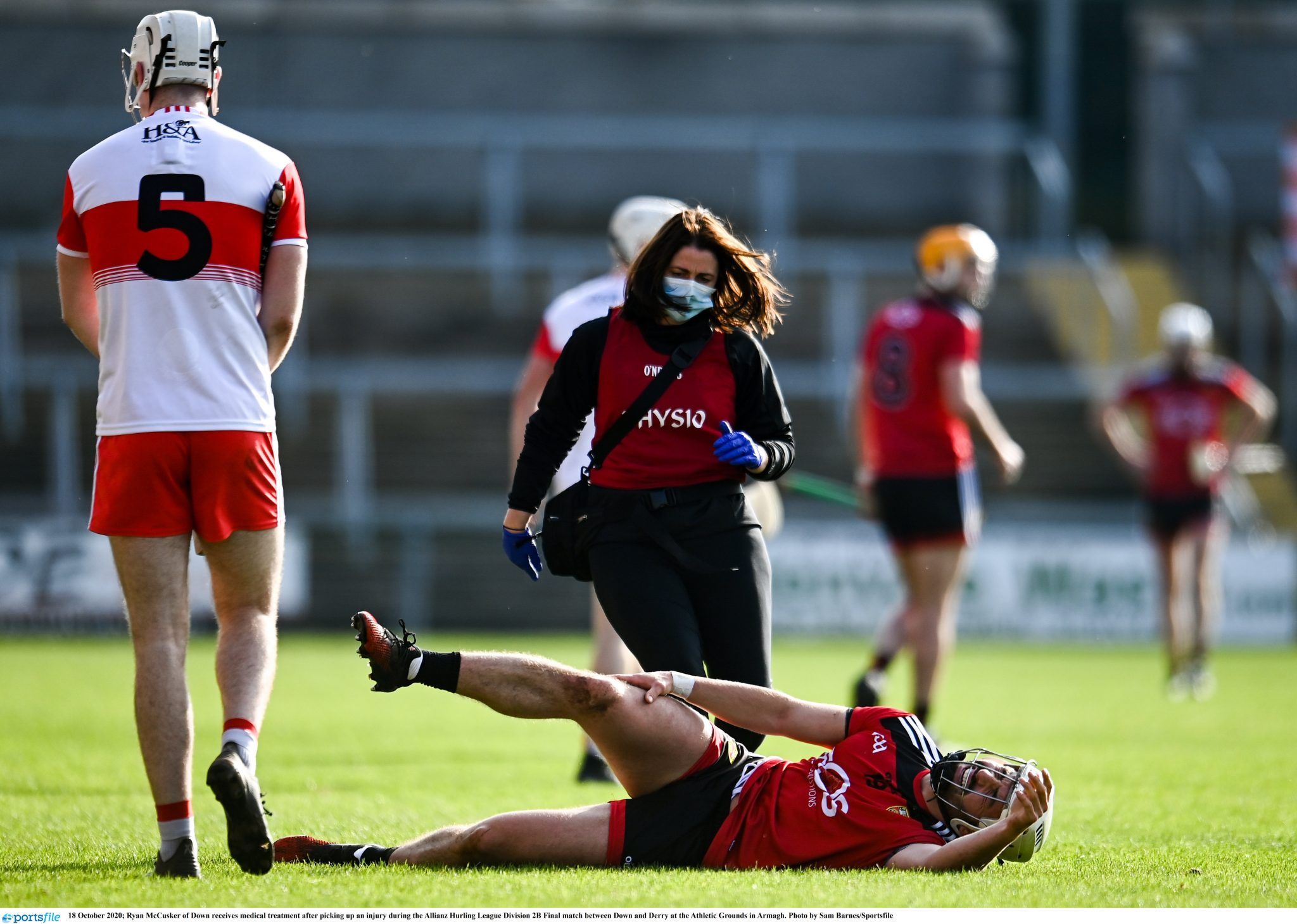

Share
4th May 2021
02:51pm BST

"One player in particular, had an ACL injury and then that started to reoccur two to three times and then all the little niggling injuries in and around that too. So the first time he did his ACL, we asked him, what he was thinking at that time and he said that for maybe two or three previous matches all he had been thinking about was that the whole weight of the team was on his shoulders.
 "So he was having these stress thoughts like I need to perform, if I don't perform we're gonna lose blah blah blah. That stress reaction was causing the stress chemicals in his body which weaken the fundamental parts of his body, which means that with the literal idea of the weight of the team on his shoulders, his knee gave out.
"Then he goes back, so everything is repaired, he goes to the physio he does his treatment, his rehab, and the physio passes him to play. However, when he goes out onto the field and he now starts to think: 'Oh, I don't think my knee is where it should be', yeah, he's been given the go ahead, but his thoughts are creating that stress again, which weakens the body.
"Then he goes out and he does his knee again. So it isn't the physical thing that brings the end result, but it's the mental thing which firstly causes the process of weakening the body."
One way of clearing your head of this mental negativity that can result in injuries, is the use of meditation, a technique used very frequently by the all-conquering Dublin team, led mainly by Kevin McManamon.
"The way I see meditation is, because it had a stigma and I would have been one of the people who would have said the same you know, back maybe 10 years ago, I would have said meditation was for tree-huggers and hippies," confessed Fox.
"So he was having these stress thoughts like I need to perform, if I don't perform we're gonna lose blah blah blah. That stress reaction was causing the stress chemicals in his body which weaken the fundamental parts of his body, which means that with the literal idea of the weight of the team on his shoulders, his knee gave out.
"Then he goes back, so everything is repaired, he goes to the physio he does his treatment, his rehab, and the physio passes him to play. However, when he goes out onto the field and he now starts to think: 'Oh, I don't think my knee is where it should be', yeah, he's been given the go ahead, but his thoughts are creating that stress again, which weakens the body.
"Then he goes out and he does his knee again. So it isn't the physical thing that brings the end result, but it's the mental thing which firstly causes the process of weakening the body."
One way of clearing your head of this mental negativity that can result in injuries, is the use of meditation, a technique used very frequently by the all-conquering Dublin team, led mainly by Kevin McManamon.
"The way I see meditation is, because it had a stigma and I would have been one of the people who would have said the same you know, back maybe 10 years ago, I would have said meditation was for tree-huggers and hippies," confessed Fox.
"The way I use meditation now, is because we understand now that thoughts create physiological reactions in the body. If you think about eating a lemon, and really visualise it, what happens is the mouth starts to fill with saliva. So that means that a thought can create a physical reaction in your body."Therefore, a positive thought creates positive reaction, negative thought creates a negative reaction. Now, what meditation does - we try not to have thoughts by just concentrating on our breathing, but it can also shed light on what you were going to be thinking all day without realising - because the more you try to not think, the more you do think. "What I get my clients to do is after they spend three minutes of trying not to think and when they catch the thoughts they're having, they write those thoughts down, which means that they are now conscious of what was going on in the background. Then, if they can do it there or later on during the day, just set aside some time to act on those thoughts because those thoughts might be: 'I need to send that message to my boss or I need to contact my ex girlfriend' etc. "Without meditating, they would have kind of known but not really been aware that they were thinking about that, because they're thinking about stressful environments and they're creating anxiety. Then that thought is dealt with and it can disappear. So therefore, you've cleared up some of the negative physiological reactions that you were going to have in your body and that's why it's really important for injury prevention that you meditate." For information about Gareth Fox and the programmes that he currently has available, you can contact him via his Instagram account @garethfox_
Explore more on these topics: